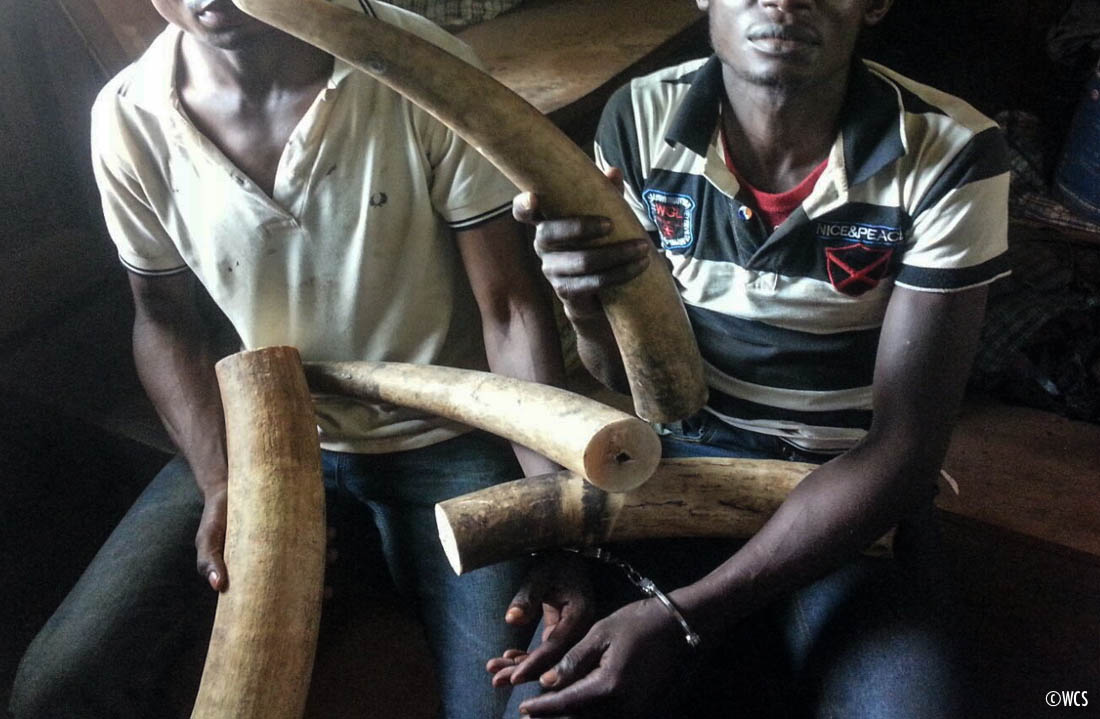
Two arrested with 15 kg of ivory
On the 3rd of March 2016 two men were arrested in northern Congo in the possession of 15 kilograms of ivory, an automatic weapon and nearly two hundred rounds of ammunition. Fitting that this arrest occurred on World Wildlife Day, which this year emphasized the importance of taking the future of wildlife, and specifically that of African elephants, into our hands.
WCS supported the investigation that led to the arrest, and will continue to support efforts to ensure that the proper judicial proceedings are followed against the alleged traffickers. The accused were caught red handed breaking several Congolese laws. For their crimes of poaching elephants; trafficking and selling ivory; and possessing and using an illegal automatic weapon they could face up to five years behind bars and fines of up to 5 000 000 CFA ($8000).
Northern Congo is home to almost a quarter of the remaining forest elephants in Africa. Within Congo the level of elephant poaching spiked between 2012 and 2014, with poachers penetrating deeper into areas that were once considered safe zones. Logging in the areas surrounding Nouabalé-Ndoki National Park (NNNP) – a WCS-managed Park – has opened up road networks into once remote regions, making accessibility by illegal hunters much easier and resulting in an influx of people to newly accessible areas. Ecoguard numbers were increased significantly in NNNP in 2015, and this has enabled protected areas to increasingly take the fight to poachers and improve levels of protection for elephants, but the recent arrests demonstrate that these anti-poaching units still have a lot of work to do. Early this year, WCS began a project to support effective judicial follow-up and prosecution of arrested poachers in the courts.
”To confront the expanding threats to elephants and the prevalence of ivory traffickers in the region WCS Congo is investing in the development of full-chain wildlife law enforcement programs from arrest through to successful prosecution.
Using genetic tracing from confiscated ivory, a recent study published in the journal Science pinpointed the hotspots of ivory poaching in Africa. Two key supply zones were southern Tanzania and central Africa with the epicenter in the TRIDOM, an area covering three countries: Republic of Congo, Gabon and Cameroon. To confront the expanding threats to elephants, and the prevalence of ivory traffickers in the region, WCS Congo is investing in the development of full-chain wildlife law enforcement programs from arrest through to successful prosecution. The lack of effective prosecution in the courts following arrests of wildlife criminals however continues to be one of the greatest challenges in preventing wildlife crime.


Williamlef
I am now not certain the place you’re getting your info, however good topic. I needs to spend some time learning more or figuring out more. Thank you for magnificent info I was on the lookout for this information for my mission.